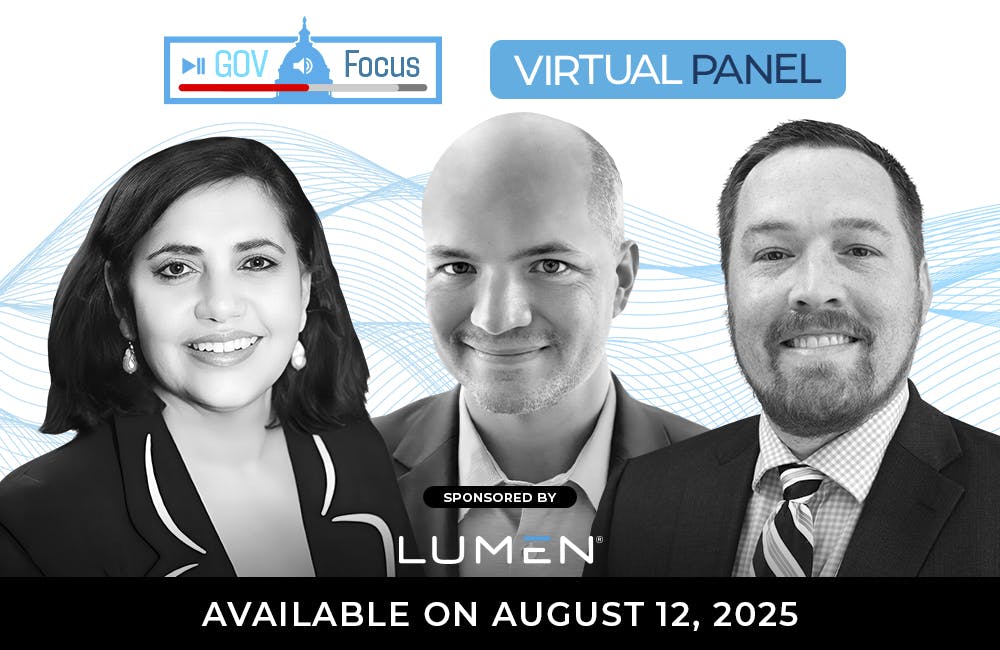CMS Prepares Health Insurance System for Unemployed During COVID-19
The agency is using technologies like virtual waiting rooms and automation to mitigate the increased traffic.

As more than 40 million Americans have filed for unemployment during the public health crisis, many have consequently lost their employer-based coverage or can’t afford existing health care plan payments. Supporting those who rely on coverage through the federal health insurance exchange via healthcare.gov while maintaining the website’s IT operations has since become one of the Centers for Medicare and Medicaid Services’ top priorities.
“Our primary response has been one of looking at how we can reduce friction for folks who are recently unemployed to join the exchange,” CMS Marketplace IT Group Director Marc Richardson said during a FedHealth IT Awards virtual event.
For those who have unexpectedly lost their health insurance coverage during the pandemic, the agency is offering a 60-day special enrollment period available on healthcare.gov. It’s also offering enrollment to those who expect to lose their health insurance within the next 60 days.
Because the special enrollment period falls outside of the typically busy annual enrollment period that occurs at the end of every year, Richardson said his team has adjusted operational mindsets to be “always on” due to the possibility of systematic issues with the site.
“The COVID-19 response has been one of being ready and prepared should we see a surge in the exchange,” Richardson said, “and to have the capability and capacity to deliver those services to folks.”
One tactic CMS has used in previous enrollment periods is utilizing virtual waiting rooms to mitigate high user traffic. Once directed to a waiting room, users are asked to wait and the page will automatically refresh when a user can continue, ensuring a seamless end-user experience and optimized web-performance, according to CMS.
While the agency manages the influx of users enrolling into the marketplace at this time, Richardson also said the team is preparing other services to maintain the stability and reliability of the platform for this year’s open enrollment period.
Since the move to the cloud last year, the group has gained insights into how all of the exchange systems operate in one ecosystem, which will help with simulating and anticipating what will happen. However, they are still looking at how to realize the full potential of the cloud.
“We’ve learned a lot within the last 16 months what it takes to run this ecosystem in this new environment,” Richardson said. “Our goal for this year is to really take some of those learnings around how a system behaves, how response times are … and feed that into our models this year as we try to simulate what open enrollment might look like.”
In addition, this increased visibility and modeling run for the exchange systems would allow the team to improve software quality assurance to ensure “end-to-end total quality.”
The team is also looking to leverage automation like machine learning to assist in route tasks that fall onto developers and enhance deployment capabilities.
“We are looking at machine-learning technologies, not so much on the front end of what you know as healthcare.gov, but really looking at the mounds of data that we produce — whether that be in our system logs and how that system is behaving, looking at how some of our partners behave, or even in some of our analytical processes around financial management and risk adjustment,” Richardson added.
This is a carousel with manually rotating slides. Use Next and Previous buttons to navigate or jump to a slide with the slide dots
-

Navy Expands Black Pearl Capabilities to Drive Operational Resilience
The Department of the Navy's Black Pearl software factory and Innovation Adoption Kit boost software development and operational resilience.
5m read -

How NASA’s AI Plan Boosts Government Efficiency
NASA Chief Data and AI Officer David Salvagnini shares how the agency is integrating AI with data to drive innovation and efficiency across government.
9m watch -

Modernizing IT Systems for AI Adoption
USPS, NIH and Lumen discuss how modernization, data strategies and security are shaping AI’s future role in government.
20m watch -

NSF Wants Industry Driving Quantum Innovation
The agency is pushing for partnerships to enhance the research community as Congress weighs additional legislation.
3m read








